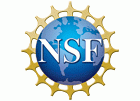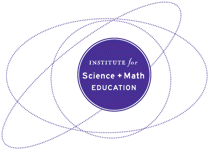Using Nature Journaling to identify meaningful local phenomena and support the infinite range of student sensemaking

WHY IT MATTERS TO YOU
- Teachers should design and integrate nature journaling activities to enrich their existing curricula. It is vital that students have extended opportunities to connect with and make sense of natural settings outside of school.
- District staff and PD Providers should develop partnerships with local parks, nature reserves, Tribal Nations, and nature areas and other community resources that afford nature journaling opportunities for students.
- School leaders should recognize nature journaling experiences as valuable and core educational activities supporting student understanding of phenomena.
What Is The Issue?
Three-dimensional science learning centers on student sensemaking of phenomena. However, finding phenomena that are safe, accessible, culturally relevant, and grounded in the place where students live can be challenging for educators. Nature Journaling (NJ) can provide simple tools and strategies that educators can employ to encourage students’ investigations of local phenomena through deeper observations. In addition, helping students explore phenomena in local outdoor places leverages their interests and supports building relationships and awareness about community and neighborhoods.
Authors:
BY MEENAKSHI SHARMA, REBECCA ROLNICK, ANNE STEPHENS, AND KATHRYN HAYES | FEB. 2023
REFLECTION QUESTIONS
- What is unique about the places where we live? Where can you find environmental phenomena in places that might be overlooked or unexpected?
- What phenomena can you bring into the classroom (or in closer proximity to students) when outdoor sites are limited?
- How can each student use their journal in a way that is useful to them and deepens their understanding and caring? How can teachers support that exploration through words, pictures/diagrams, and numbers?
Things To Consider
- The terms Nature Journaling (NJ), science journaling, science sketching, and science notebooking are often used interchangeably, but each practice has a different structure and purpose. NJ focuses on recording experiences and observations about a place and/or phenomena through sketching, recording, quantifying, and writing. Students’ curiosity about phenomena and their creativity in expressing their observations and recording data about the phenomena drives the NJ process.
- NJ can be integrated into one lesson or can be used to support sustained learning about a place over an extended period of time. When students observe phenomena in a place over time, they can more easily observe patterns and dynamics, supporting the generation of causal questions. In addition to patterns, dynamics and causation, NJ can help students learn all crosscutting concepts, including systems and systems models.
- NJ can help students recognize the significant role nature plays in everyday lives and their awareness of local socioscientific issues, such as connectedness between nature and pandemics or ways nature affords happiness and well-being. It can deepen students’ affective connections with nature and grow aesthetic appreciation for nature, leading to awareness of and involvement in local environmental issues.
Attending to Equity
- Multimodal learning is at the crux of NJ. It is a multi-sensorial practice that is embodied and emplaced. It uses art, technology, writing, and a combination of multiple literacies as modes for students to express their learning in an outdoor environment. Writing is an integral aspect of the NJ process, especially creative writing, writing to articulate connections between phenomena, creating visuals using field sketching, and poetry.
- Students’ cultural knowledge, home language, and sense of belonging in relation to place can be foundational to investigation of a phenomenon using NJ.
- Teachers can keep their own nature journal alongside students to model the process and remove themselves as the only authority in the classroom.
Recommended Actions You Can Take
- NJ is meant to provide students agency to pursue their personal wonderings and reason about a natural event with numerous possibilities, creating their own unique descriptions of it. Use prompts and techniques to encourage students’ original thoughts, observations, and data collection—without taking a prescriptive approach.
- Challenge the concept of “wilderness” and broaden the perceptions of the term “nature” by including urban spaces and people, as well as facilitating close interactions with other living things. Examples include: placing bird feeders in classroom view, setting up a classroom aquarium, making binoculars or a spotting scope available for viewing, having a variety of potted plants, and observing cricket or garden snail behavior.
- How are students progressing in their meaning-making? Appendix E of the NGSS provides grade level progressions through the Disciplinary Core Ideas. Stephens & Hayes (2022) developed a rubric for assessing student understanding of the Crosscutting Concepts that is specific to nature journaling. NJ techniques that support understanding of the cross-cutting concepts include stem-and-leaf plots, observing over time, comparisons, and observations of micro-structures.
- Use curricula that integrate field experiences and allow for learning outdoors, e.g., Learning in Places, SnowSchool, FireWorks.
ALSO SEE STEM TEACHING TOOLS
STEM Teaching Tools content copyright 2014-22 UW Institute for Science + Math Education. All rights reserved.
This site is primarily funded by the National Science Foundation (NSF) through Award #1920249 (previously through Awards #1238253 and #1854059). Opinions expressed are not those of any funding agency.
Work is licensed under a Creative Commons Attribution-ShareAlike 4.0 Unported License. Others may adapt with attribution. Funded by the National Science Foundation (NSF). Opinions expressed are not those of any funding agency.


 Email Feedback
Email Feedback

